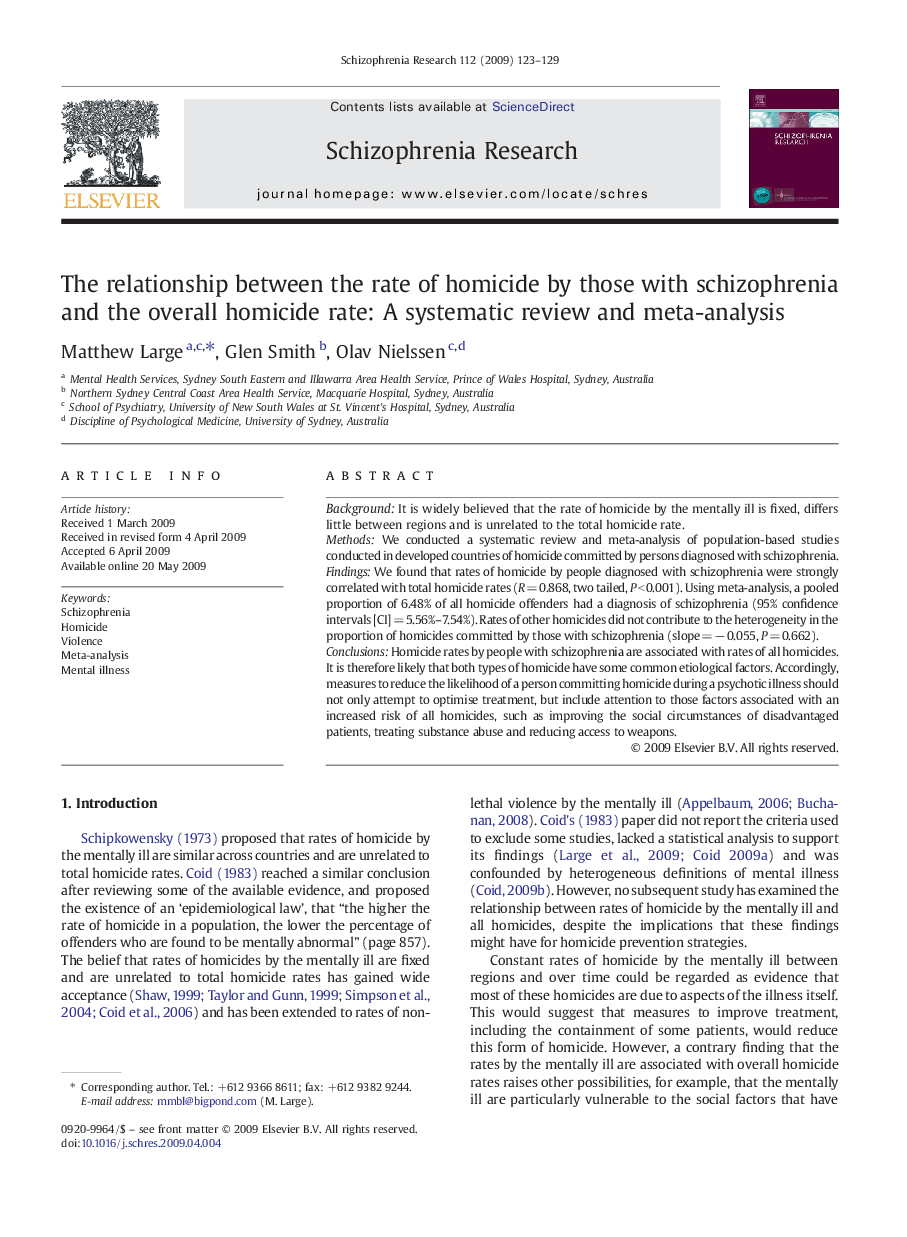| Article ID | Journal | Published Year | Pages | File Type |
|---|---|---|---|---|
| 341493 | Schizophrenia Research | 2009 | 7 Pages |
BackgroundIt is widely believed that the rate of homicide by the mentally ill is fixed, differs little between regions and is unrelated to the total homicide rate.MethodsWe conducted a systematic review and meta-analysis of population-based studies conducted in developed countries of homicide committed by persons diagnosed with schizophrenia.FindingsWe found that rates of homicide by people diagnosed with schizophrenia were strongly correlated with total homicide rates (R = 0.868, two tailed, P < 0.001). Using meta-analysis, a pooled proportion of 6.48% of all homicide offenders had a diagnosis of schizophrenia (95% confidence intervals [CI] = 5.56%–7.54%). Rates of other homicides did not contribute to the heterogeneity in the proportion of homicides committed by those with schizophrenia (slope = − 0.055, P = 0.662).ConclusionsHomicide rates by people with schizophrenia are associated with rates of all homicides. It is therefore likely that both types of homicide have some common etiological factors. Accordingly, measures to reduce the likelihood of a person committing homicide during a psychotic illness should not only attempt to optimise treatment, but include attention to those factors associated with an increased risk of all homicides, such as improving the social circumstances of disadvantaged patients, treating substance abuse and reducing access to weapons.
